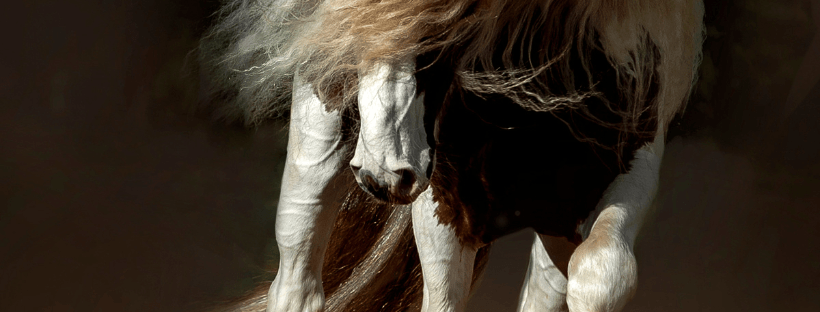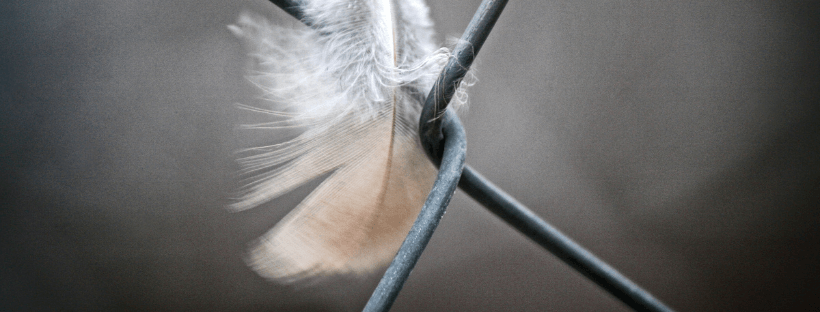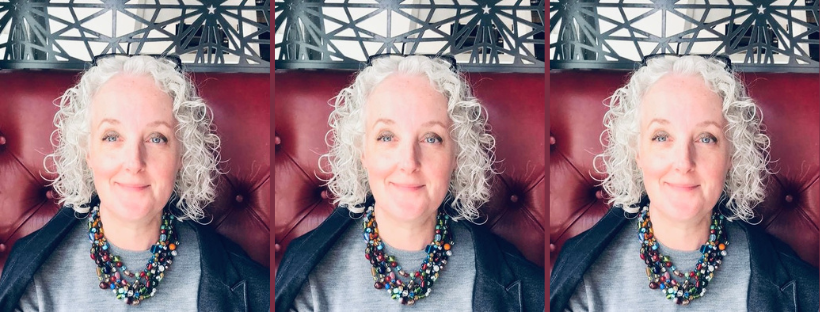Animal Beauty
- by Rachel Davidson
- •
- 07 Dec, 2020
- •
what two fictional characters taught me about living.

Consider for a moment if you will, how some book characters fade from one’s memory whilst others remain deeply implanted, offering a residual perspective, or lens, through which one views one’s life.
For a recent interview, I was asked to pick a fictional character as a friend or ‘companion’. There were two characters which stood out for me. These characters came from books I read as a youngster (for in our formative years there is greater possibility for stories to carve the shape of our hearts).
If you know me, you will perhaps not be too surprised that both characters are equine! Horses are such a powerful emblem to me. I spent much of my earlier life working with them. I still love them deeply. They have strong symbolism for me.
The two characters are Ginger, the chestnut mare from Black Beauty, and Boxer, the carthorse from Animal Farm. Their stories are powerfully poignant. As a child they made me weep. I cry now, as I recall them. Here’s what they mean to me:
Firstly, dear Ginger; a creature of great beauty and fine lines. She is a mare – a bright copper chestnut, she stands out and is valued for her beauty. But Ginger is not satisfied with this. She is haughty, tends towards touchiness. She bridles easily and rejects the heavy hands of the humans, to whom she does not tolerate being subservient. She is likely to kick-out and bite. She wants respect and gentle handling, for somebody to see her wild and restless nature and understand its importance to her. She is willing to align with those that are capable of such insight. But there are few of these sensitive souls in the world, fewer still who embody the patience she needs in order to trust.
For the humans in the story, Ginger is too much hard work. Slowly, inevitably, her life becomes rougher and harsher. Her status falls, she is sold on. No longer the upper-class ladies ‘hack’ she is put to more and more menial work. She fades from the story as the narration follows the main character, Black Beauty. The book returns to Ginger’s story in dramatic fashion with her undignified and public ending. I distinctly remember the scene – a chestnut horse’s head lolling from the cart, blood dripping from the lifeless, hanging tongue. Some of Ginger’s last spoken words are thus; “men are strongest, and if they are cruel and have no feeling, there is nothing that we can do, but just bear it—bear it on and on to the end.”
My heart. Oh Ginger. How could they?
The abject hopelessness described! The undeniable cruelty of man. It was a warning; if one is sensitive, harder to live with than ‘most’, feel things too much, care too much, then you might expect to suffer in similar manner. Black Beauty, by comparison, has a gentler journey, being able, perhaps, to tolerate the hand of man’s authority more willingly. Black Beauty is liked more, he fits in more. He has an easier life because of it.
Ginger’s tale reminds me that there is protection in holding back some of oneself from others. Ginger kept fighting for herself, which is admirable, but in doing so, she placed the onus on these ‘others’ to change their behaviour towards her. That was her mistake. That is the unkindness of humanity – others do not generally change to suit you. The only person capable of change to suit oneself is yourself. Had Ginger realised that no-one was coming to save her, she had only herself to rely upon, she may have learned to compromise, and even develop an acceptance of her situation. She may have found peace without too much sacrifice. It’s a manifesto for how to survive an environment or situation that feels bad, from which one cannot easily leave, how to take back some power. It may be as equally flawed as Ginger’s original approach! Luckily, I am not a horse in harness, I have personal agency. I get to set my boundaries and have freedom to choose who I spend my time with. Ginger’s story reminds me of how deeply grateful I need to be for that fact.
Now to my recollection of dear, faithful Boxer, the carthorse from Animal Farm. The emphasis of course is on that descriptor – faithful. This is the key to Boxer’s character. He has immense strength; is capable of useful and difficult work that benefits the whole farm. More than this, he is a willing worker. He believes with the whole of his big-heart that if he leans into the toil, pushes himself to get it done, then his world, and that of his friends, his fellow farm-dwellers, will be better. Religiously, with determined application, he turns up every day and does his best. He follows the orders, believes that the system he labours for is a fair one. Of course, dear Boxer is deeply mistaken. At the first sign of weakness from him, when he is unable to perform his role, we discover what happens to those that are no longer useful. Boxer is told a lie; he is being sent to the vet for the best care possible. The last image I have is of him willingly getting into the horsebox, his big, kind, faithful face looking hopeful that he is to be looked after and allowed time to recover. The terrible betrayal is revealed at the last minute, when too late. I recall how Boxer attempts to escape, how he beats his big hooves against the wood, of how such a kick would have worked in his youth, he would have been capable of saving himself. But he has worked too hard for this untruthful society, given too much of himself. The big-hearted beast has been complicit in his own downfall.
The book does not return us to Boxer’s point of view after this, but my imagination did! The cruelty of knowing that Boxer spent that last journey realising the awful depths of underlying treachery to which he had unknowingly devoted himself.
Boxer’s tale tells me that an absolute loyalty towards authority figures and systems is dangerous. Every single person of authority, every single system of governance and control that has ever existed in humanity, and will ever exist, always benefits from being frequently and regularly questioned, challenged and tested. The authority of spouses over one another, the authority of teachers over students, the authority of policy setters, and their policy enforcers, have over the societies they are elected by – all of these are relationships of trust. Such a contract can only remain generally beneficial to all, if it is subject to rigour and justification. Boxer’s blind faith, his unquestioning service was foolish.
The question, “why?”, can be one of the most difficult questions to give voice to. It is one of the most important questions that I, you, we all should be asking. Seeking deeper answers, applying regular doses of healthy-scepticism to one’s ‘authority figures’ and to question one’s own behaviours and beliefs in similar ‘judicial’ fashion is a very good habit to get into. This will likely mean that one isn’t quite so easily dismissed or removed. Perhaps, this keeps society a fairer and safer place to live within. Being yourself, wholly, in all your choices because you have conducted your own analysis, makes you a true scientist of your life. Had Boxer’s character been written as such, he would have been a much greater threat to Napoleon and the other pigs, because he would not have given away his power.
This is the common thread between these two characters, and of my life’s learning.
There are many ways to give away your power. You can fight for a futile outcome. You can blindly serve a corrupt system. These might feel ‘easier’ or ‘better’ choices in the moment, but you risk their malignant harvest.
The life-long ‘win’ is to consider
your own behaviour, consider your own choices, consider who you believe your
best self to be and to choose both the battles and the moments of service in your
life unswervingly in accordance with who, in your constant seeking, you find
you are.
Rachel x
P.S. The Hope of Us, Beyond Veils, Book 3:
May I I ask, if you've grabbed yourself a copy, to let me know what you think of Mona and her answer to the question; can love overcome a legacy of abuse? Or even better - let lots of other potential readers know by writing up a quick review on Amazon. It is one of the most useful things you can do to help my writing career. Thank you. If you haven't yet got a copy, then fear not, click here
to be taken to the Amazon page.
P.P.S. Audiobook lover? The second Book in the Beyond Veils Series - The Truth of Her, Beyond Veils, Book Two - is now available as an Audiobook!
You can download it from Amazon, Audible or the Apple Store. It's about 11 hours of fantastic narration by the wonderful actress, Amy Foley of a story that asks 'how do you remain a good person when bad things keep happening to you?' Get it now, here.
P.P.P.S I have a podcast too! Published on Apple Podcast - it is called "Letters from an Author" and features me, reading aloud these letters that I send to you, my subscribers, my friends. You can download and listen to the episodes - about 10 minutes or less per episode, because I know how busy we all are - here. I had great fun recording them, I hope you enjoy listening.
P.P.P.P.S
Also worthy of mention is that the full series collection has just been published as a single eBook - and at a significant discount of 44% on the total purchase price. Get 'The Beyond Veils Series Collection' for just £9.99 here.









